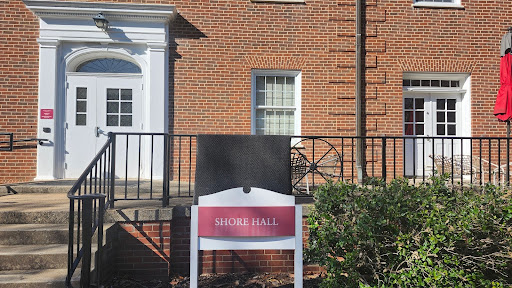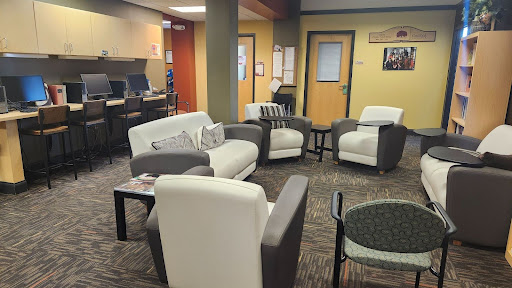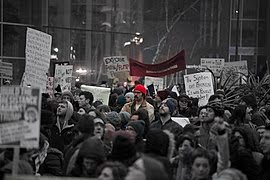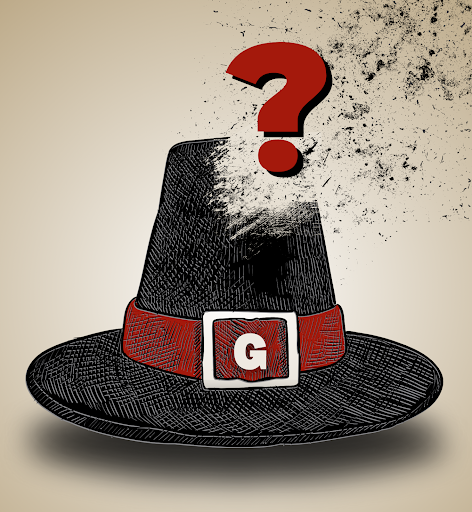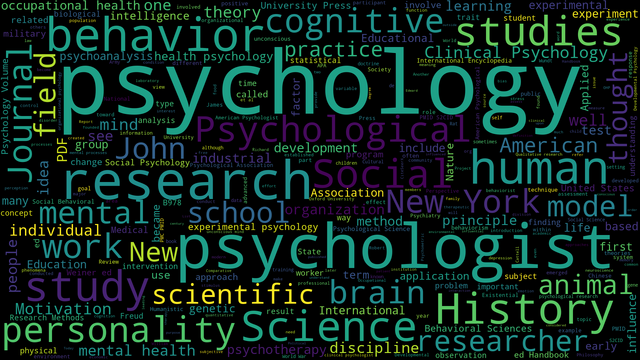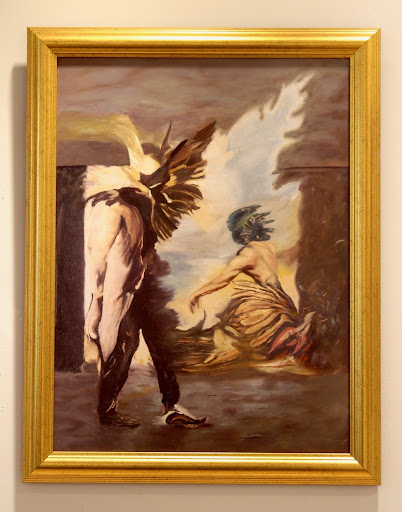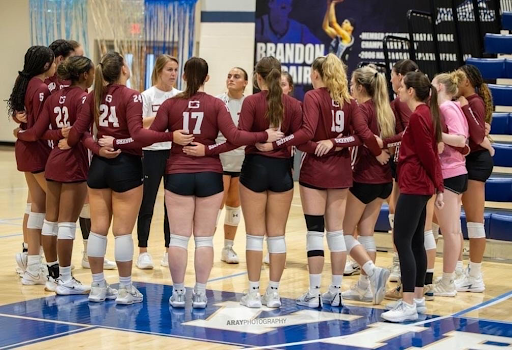For only the ninth time in its history, Guilford College is preparing to select a new president. Over the coming months, Guilford will begin the long search process.
“I have seen three of these presidential searches during my 45 years at Guilford,” said Elwood Parker, professor of mathematics. “The board of trustees decides how to conduct the search process. The typical process involves the formation of a search committee.
“The trustees have control over who is on the search committee and how many people are on the committee. Typically, there have been three faculty members, some trustees, members of the alumni association and some staff.”
Linda Thorup ‘82, member of the board of trustees, gives more detail about the search committee.
“Board Chair Joseph M. Bryan Jr. is actively assembling a search committee comprised of 12–14 members which includes the Search Committee Chair and Vice Chair,” said Thorup in an email interview.
The search committee is charged with narrowing down applications, doing preliminary interviews and ultimately making a recommendation to the full board of trustees so they can make the final decision.
Students and faculty also have representation on the committee. Typically, members of the faculty, a traditional student and a CCE student, participate in the preliminary interview process.
Many faculty members feel they need a direct influence in the decision.
“Because of tenure, faculty members often have the longest standing relationship with a college of any constituency,” said Jim Hood, professor of English. “Faculty are the guardians of the institutional memory and mission and should therefore play a key role in the decision making. They need to serve on the search committee and should be widely consulted throughout the search process.”
Because of their longstanding commitment to the school, many faculty members have specific dreams for the future and hopes for the new president.
“My personal dream for Guilford emphasizes social justice, one of our key values,” said Tom Guthrie, associate professor of sociology and anthropology. “We should be thinking critically about making Guilford a much more diverse and accessible institution, where all are concerned about improving the world.”
Guthrie shared his opinion regarding qualities the next president should possess.
“My hope is that the president has a very bold, creative vision for Guilford, and will inspire us to create that vision,” said Guthrie. “I would hope the president would build a consensus from the bottom up rather than leading from the top down.”
Nancy Daukas, professor of philosophy, elaborated on this point.
“We’ve become very ‘top-down’ in our governance structure,” said Daukas in an email interview. “If we hope to retain our identity — our soul — we need a leader who sees leadership as service, as facilitation, as enabling the creative, formative work of the community rather than as power and prestige.
“We need a leader who values grass-roots, community-based decision-making processes guided by our core mission as a practical liberal arts college in the Quaker tradition.”
Several faculty members would like to see an increased commitment to our core values, especially community.
“My dream is for an increased sense of community that is even more diversified than what we have but with a greater sense of community,” said Richie Zweigenhaft, Dana professor of psychology. “We now have early college, traditional college and adult students all on separate tracks with very little interaction with the exception of the classroom.
“My dream would also include more appreciation of staff in our community. I would like for us not only to pay faculty more but also to pay the staff, including the lowest paid maintenance staff, more than we currently do.”
Maria Rosales, associate professor of political science, would also like to see more appreciation for the Guilford community.
“I would like everyone who works at Guilford College, in whatever role, to feel both valued and to value the work of everyone else here, including students,” said Rosales in an email interview. “I would like us to share our creativity even more than we do.”
Suzanne Sullivan, assistant director office of communications and marketing outreach, also discusses the uniqueness of Guilford’s community and the need to market this strength.
“I hope Guilford’s next president will have a long range vision of the future of Guilford,” said Sullivan. “They should be able to help us keep our very important core values as an institution founded by Quakers, and at the same time, lead us to a successful future in a market that is increasingly competitive. I would hope that they would be able to project Guilford’s uniqueness in a positive way that will encourage people to find out more about us.
“We have a special niche in society that is attractive to many people. This message needs to get out.”
Most faculty interviewed expressed a great deal of appreciation for the many years of service from Guilford’s current president, Kent Chabotar.
“I have enormous respect for Kent and what he’s been able to do,” said Visiting Professor of Political Science Robert Duncan. “He’s dealt with some very nasty situations involving racism and violence. To Kent’s credit, he hasn’t gone into knee-jerk responses or jumped into the fray.
“He’s always waited until all of the evidence was in and looked at the facts. He’s very cool, calm and deliberate in dealing with crises. Perhaps most importantly, he pulled Guilford back from the brink of bankruptcy. He’s smart, savvy and a good manager.”
Faculty are not the only ones with a stake in the search for Chabotar’s replacement. Students also play a role.
“I encourage students to have conversations,” said Guthrie. “Now is the crucial time to get involved in the conversation. The last few weeks of the semester are crucial because things tend to fall apart over the summer. That’s when the search really heats up.”
To begin the conversation in response to Guthrie’s charge, The Guilfordian asked 10 students what leadership qualities they would like in the next president.
Community Senate President for 2012–13 Tim Leisman offers his list of leadership qualities needed in the next president.
“They must be able to fundraise and strategically plan very well,” said Leisman in an email interview. “They must be open and transparent (and) keep the innovative education of Guilford alive while also working to break down barriers. They need to be a good communicator with the faculty and staff, and work to increase their salaries.”
Junior Samir Hazboun, newly elected Community Senate President for 2013–14, offers his own list of qualities needed in a new president of Guilford.
“Personally, I like leaders who are charismatic, candid, approachable, unintimidating, humorous, humble and deeply caring,” said Hazboun.
Current CCE Student Government Association President Victor Lopez offers his own opinion regarding challenges that the new president will face as well as the qualities needed.
“We have low enrollment and rising educational costs,” said Lopez. “The next president of Guilford will have to be fiscally prudent and work well with faculty, staff and students. For the past 10 years, we have been financially prudent, but we have not taken the chances necessary to make a brand for ourselves.
“In the current marketplace, we are going to need to focus on technology (to make) the campus fun and enticing to prospective students. We will also need a president that will do more than manage but appear at student and faculty events. Guilford will need to be the cornerstone of the next president’s life.”
Senior criminal justice major Donte Mitchell agrees that the next president needs to be visible in the community.
“I would like to see more interaction with the students and more programs to get the president involved in the community,” said Mitchell.
Sophomore Brittany DeCesare has a similar opinion.
“The president should be someone who is caring and present in the community,” said DeCesare. “He should be responsible, honest and take the actions that he says he will.”
“I’m looking for accountability and transparency, as well as somebody who has spent time away from the political realm and somebody who is not corporate,” said junior Isaiah Day, a peace and conflict studies and sociology and anthropology double major.
“The president should take care of current students and not just worry about incoming students,” said Resident Advisor and sophomore Amber Weaver. “The students should have a panel discussion about the selection to let people know what is going on.”
“The next president needs to have an experienced background,” said junior political science major Joseph McManus. “They need to be moderate in (their) views and have a clear vision for the school.”
The faculty and students would also like to see a commitment to diversity.
“The new president should be more respectful of diverse points of view,” said senior Mike Gatton. “Often, different points of view are shunned or degraded.”
The board has already expressed interest in gathering the opinions of alumni, faculty, staff and students.
“As a testament to our connection to the college, the board has several members who, as alumni, have personally known and worked with at least five of the eight recent presidents on and off the board,” said Thorup. “This knowledge of the school’s leadership history combined with the expertise and insight of the full board gives us valuable perspective as we begin the process of a presidential search to name President J. Kent Chabotar’s successor in the spring of 2014.”


